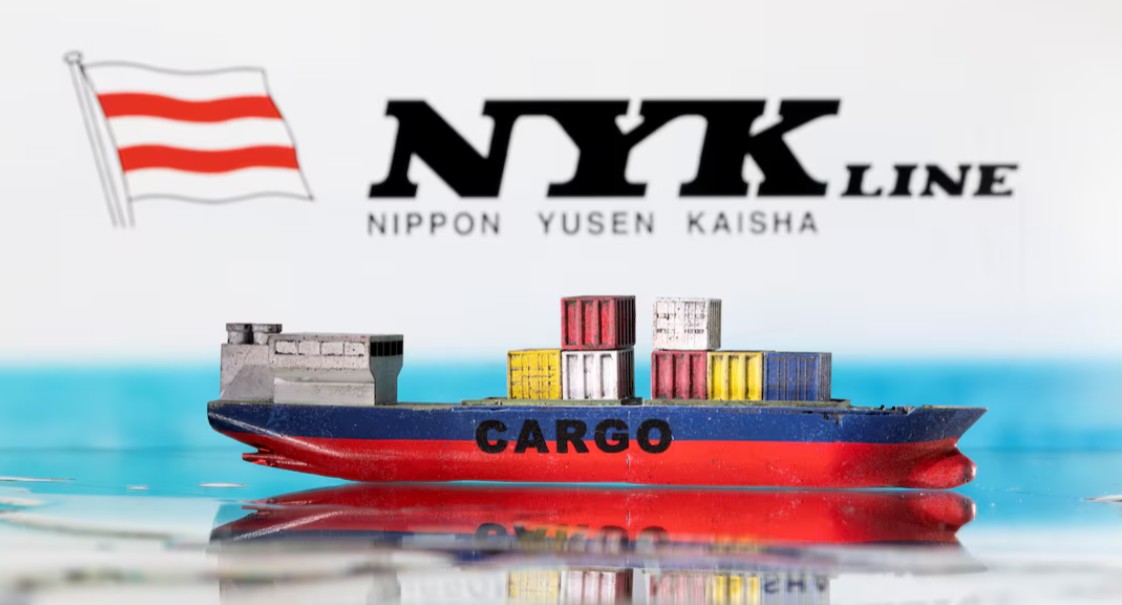TOKYO — Japan’s Nippon Yusen and Mitsui O.S.K. Lines said on Monday they have instructed their vessels to minimize the time spent in the Gulf as they continue to transit the Strait of Hormuz following the US strikes on Iranian nuclear facilities.
The shipping companies said they are closely monitoring the situation and sharing updates with ships operating in the region.
“We are instructing our vessels to shorten their time in the Persian Gulf whenever possible, depending on their schedules,” a Nippon Yusen spokesperson said.
“We will make decisions on each vessel’s passage through the Strait of Hormuz on a flexible basis,” he added.
MOL’s safety operation supporting centre in Tokyo has stepped up 24-hour surveillance, a company spokesperson said.
“We are advising vessels operating in the area to exercise maximum caution and providing them with latest information,” he said, adding that their vessels have also been instructed to minimise the time in the Gulf.
President Donald Trump said the US had “obliterated” Iran’s main nuclear sites in strikes over the weekend, joining an Israeli assault in an escalation of the conflict in the Middle East as Tehran vowed to defend itself.
Iran’s Supreme National Security Council must make the final decision on whether to close the Strait of Hormuz, Iran’s Press TV said on Sunday, after parliament was reported to have backed the measure.
Iran has long used the threat of closing the Strait, through which around 20 percent of global oil and gas demand flows, as a way to ward off Western pressure which is now at its peak following the US strikes.
Japan’s exports fell in May for the first time in eight months as big automakers like Toyota were hit by sweeping US tariffs, and the failure of Tokyo to clinch a trade deal this week will likely pile pressure on a fragile economy.
Its total exports in May dropped 1.7 percent year-on-year by value to 8.1 trillion yen, government data showed, smaller than a median market forecast for a 3.8 percent decrease, and following a 2 percent rise in April.
Exports to the US slumped 11.1 percent last month from a year earlier, the largest monthly percentage decline since February 2021, dragged down by a 24.7 percent plunge in automobiles and a 19 percent fall in auto components, while a stronger yen also helped reduce the value of shipments. Exports to China were down 8.8 percent.
In terms of volume, however, US-bound automobile exports dipped just 3.9 percent, indicating that the biggest Japanese exporters were absorbing the tariff costs.
So far major Japanese automakers have refrained from price increases in the US to mitigate the tariff costs, except for Subaru and Mitsubishi Motors.
The Japan May trade data provide one of the earliest indications of how US President Donald Trump’s tariffs are impacting countries and the global economy.
China’s data showed this week that the country›s factory output grew 5.8 percent in May year-on-year, the slowest pace in six months. And its outbound shipments to the US plunged 34.5 percent, the sharpest drop since February 2020.
The impending tariffs had driven companies in Japan and other major Asian exporters to ramp up shipments earlier this year, inflating levels of US-bound exports during that period.
The Japan data showed imports dropped 7.7 percent in May from a year earlier, compared with market forecasts for a 6.7 percent decrease.
As a result, Japan ran a trade deficit of 637.6 billion yen last month, compared with the forecast of a deficit of 892.9 billion yen.





